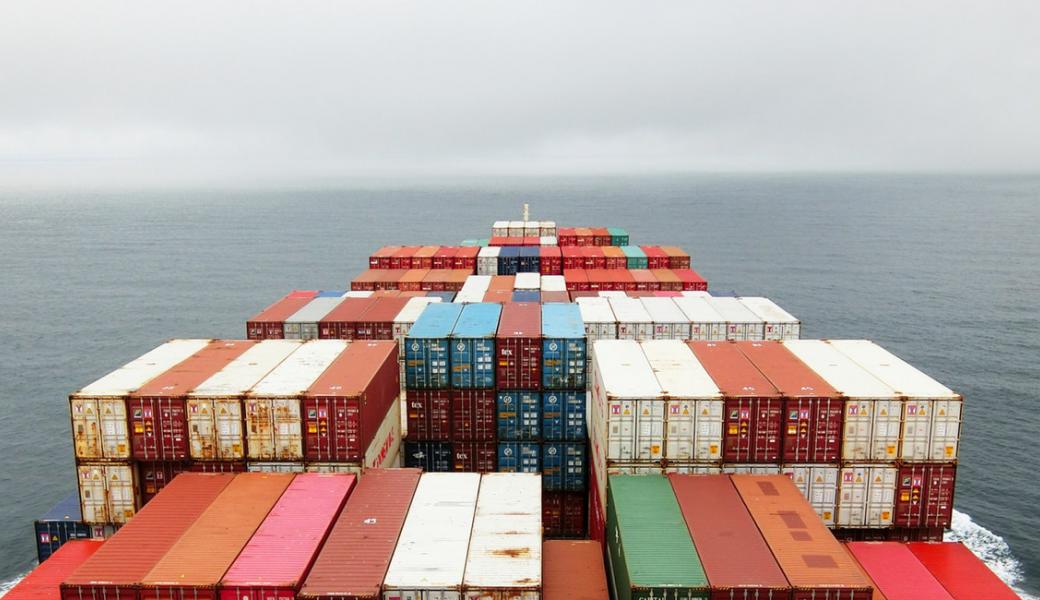Coronavirus Has Infected Global Trade: What Are The Symptoms?

The global economy is bracing for the effects of SARS-CoV-2, the virus behind COVID-19 (more popularly known as coronavirus). The virus, first detected in China, surfaced in late December and has now been detected in nearly 90 locations internationally, including the United States. While the United States accounts for relatively few of the confirmed diagnoses, Americans are feeling the effects as cities and states across the country impose social distancing measures. The markets have plummeted, businesses are closed or have employees working from home and not traveling, conferences and trade shows are being cancelled, and the federal government has instituted travel restrictions. So, what does this mean for trade?
On March 2, the Director General of the World Trade Organization, Robert Azevedo, told member delegations: "The effects on the global economy are also likely to be substantial and will start to show up in the trade data in the weeks to come[.]” China’s status as a central manufacturing hub for global businesses has ensured that disruptions of its operations will reverberate around the globe. The virus and efforts to stop its spread have impacted supply chains around the world in several ways, and we are only just beginning to see the full extent to which it will affect trade.
STOPPING THE SPREAD ON THE SEAS
When looking at global trade by quantity rather than by dollars, the vast majority of shipping is done by sea - in fact, nearly 80 percent of trade. China is also home to seven of the world’s 10 busiest container ports. Shipping companies, however, are reducing the number of seaborne vessels in the wake of shutdowns, reduced orders and other measures to attempt to stop the spread of coronavirus. This means that some ships can no longer get to port, others are stuck at the docks awaiting workers, and still, more are stuck quarantined at sea as some countries refuse to let them enter. Disruption to international shipping will have wide-ranging effects, because of the wide range of products shipped in containers - from cars to consumer goods to medicines.
UP IN THE AIR
Logistics services like DHL have seen “severe disruptions to inbound and outbound air cargo shipments, trucking, and rail cargo services." While UPS and FedEx continue to operate in and out of China, UPS has seen reduced demand due to continuing business closures in the country.
THE DIAGNOSIS
Those companies relying heavily or solely on factories in China for parts and materials will be hit hardest. Chinese manufacturing plants have seen their production fall in the past month, and experts believe that it will remain low for months. This will affect supply lead times. According to the Harvard Business Review, we can expect to see COVID-19’s peak impact on global supply chains in mid-March, which is now. They predict that thousands of companies will need to wind down or even temporarily close assembly and manufacturing plants in the United States and Europe.
According to the UN Division on International Trade and Commodities, the automotive industry’s exports may fall more compared to other goods, because the industry is geographically localized in the region where coronavirus originated.
Also affected? The $2.5 billion trade show industry. Many companies and associations are canceling trade shows and conferences. Facebook has canceled its Developers Conference, previously scheduled for May 5-6 in San Jose, Calif. Austin’s signature event, South by Southwest, has also been canceled. The New York Auto Show has been postponed to later this summer. Many are following suit, canceling all non-essential travel for employees. These types of cancellations affect more than just the host companies. They also affect the venues, staff, vendors and other companies engaged with putting on these types of events.
Similarly, tourism will also take a hit, especially international travel - international flights are down 20 percent year-on-year for February. It remains to be seen whether domestic tourism will suffer, or if folks who initially planned to go abroad will stay closer to home. It is possible that domestic tourism could benefit, if travelers don’t choose to cancel entirely and stay at home. The longer the outbreak lasts, “the more likely it is that this will convert into no travel at all,” according to travel analytics firm ForwardKeys.
TREATMENT AND RECOVERY
Expect delays in getting goods out of China. Where possible, consider sourcing goods from other countries. Unfortunately, while there will be some ways to lessen the virus’s impact, it will be nearly impossible to completely escape its effects, especially as cases continue to rise in the United States. Companies will need to remain nimble and come up with creative strategies for mitigating any effects to supply chains and taking necessary steps at home to ensure that facilities remain operational. The overall impact of the virus has not been quantified, but it is clear - the global economy will face a difficult road to recovery in 2020.
Please Sign in to View
Log in to view member-only content.
If you believe you are receiving this message in error contact us at memberservices@rvia.org.
